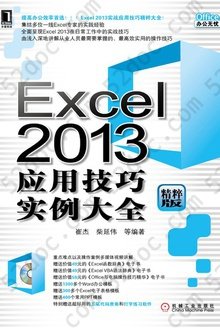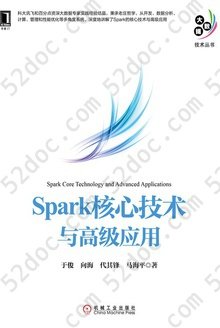注重体验与质量的电子书资源下载网站
分类于: 设计 其它
简介

Structure and Interpretation of Computer Programs - 2nd Edition 豆 0.0分
资源最后更新于 2020-10-28 12:16:20
作者:Harold Abelson
出版社:The MIT Press
出版日期:1996-01
ISBN:9780262510875
文件格式: pdf
标签: 计算机 计算机科学 programming 经典 lisp CS 系统 技术
简介· · · · · ·
Structure and Interpretation of Computer Programs has had a dramatic impact on computer science curricula over the past decade. This long-awaited revision contains changes throughout the text.
There are new implementations of most of the major programming systems in the book, including the interpreters and compilers, and the authors have incorporated many small changes that ref...
目录
Foreword xi
Preface to the Second Edition xv
Preface to the First Edition xvii
Acknowledgments xxi
1 Building Abstractions with Procedures 1
1.1 The Elements of Programming 4
1.2 Procedures and the Processes They Generate 31
1.3 Formulating Abstractions with Higher-Order Procedures 56
2 Building Abstractions with Data 79
2.1 Introduction to Data Abstraction 83
2.2 Hierarchical Data and the Closure Property 97
2.3 Symbolic Data 142
2.4 Multiple Representations for Abstract Data 169
2.5 Systems with Generic Operations 187
3 Modularity, Objects and State 217
3.1 Assignment and Local State 218
3.2 The Environmental Model of Evaluation 236
3.3 Modeling with Mutable Data 251
3.4 Concurrency: Time Is of the Essence 297
3.5 Streams 316
4 Metalinguistic Abstraction 359
4.1 The Metaciricular Evaluator 362
4.2 Variations on a Scheme--Lazy Evaluation 398
4.3 Variations on a Scheme--Nondeterministic Computing 412
4.4 Logic Programming 438
5 Computing with Register Machines 491
5.1 Designing Register Machines 492
5.2 A Register-Machine Simulator 513
5.3 Storage Allocation and Garbage Collection 533
5.4 The Explicit Control Evaluator 547
5.5 Compilation 566
References 611
List of Exercises 619
Index 621
Preface to the Second Edition xv
Preface to the First Edition xvii
Acknowledgments xxi
1 Building Abstractions with Procedures 1
1.1 The Elements of Programming 4
1.2 Procedures and the Processes They Generate 31
1.3 Formulating Abstractions with Higher-Order Procedures 56
2 Building Abstractions with Data 79
2.1 Introduction to Data Abstraction 83
2.2 Hierarchical Data and the Closure Property 97
2.3 Symbolic Data 142
2.4 Multiple Representations for Abstract Data 169
2.5 Systems with Generic Operations 187
3 Modularity, Objects and State 217
3.1 Assignment and Local State 218
3.2 The Environmental Model of Evaluation 236
3.3 Modeling with Mutable Data 251
3.4 Concurrency: Time Is of the Essence 297
3.5 Streams 316
4 Metalinguistic Abstraction 359
4.1 The Metaciricular Evaluator 362
4.2 Variations on a Scheme--Lazy Evaluation 398
4.3 Variations on a Scheme--Nondeterministic Computing 412
4.4 Logic Programming 438
5 Computing with Register Machines 491
5.1 Designing Register Machines 492
5.2 A Register-Machine Simulator 513
5.3 Storage Allocation and Garbage Collection 533
5.4 The Explicit Control Evaluator 547
5.5 Compilation 566
References 611
List of Exercises 619
Index 621








